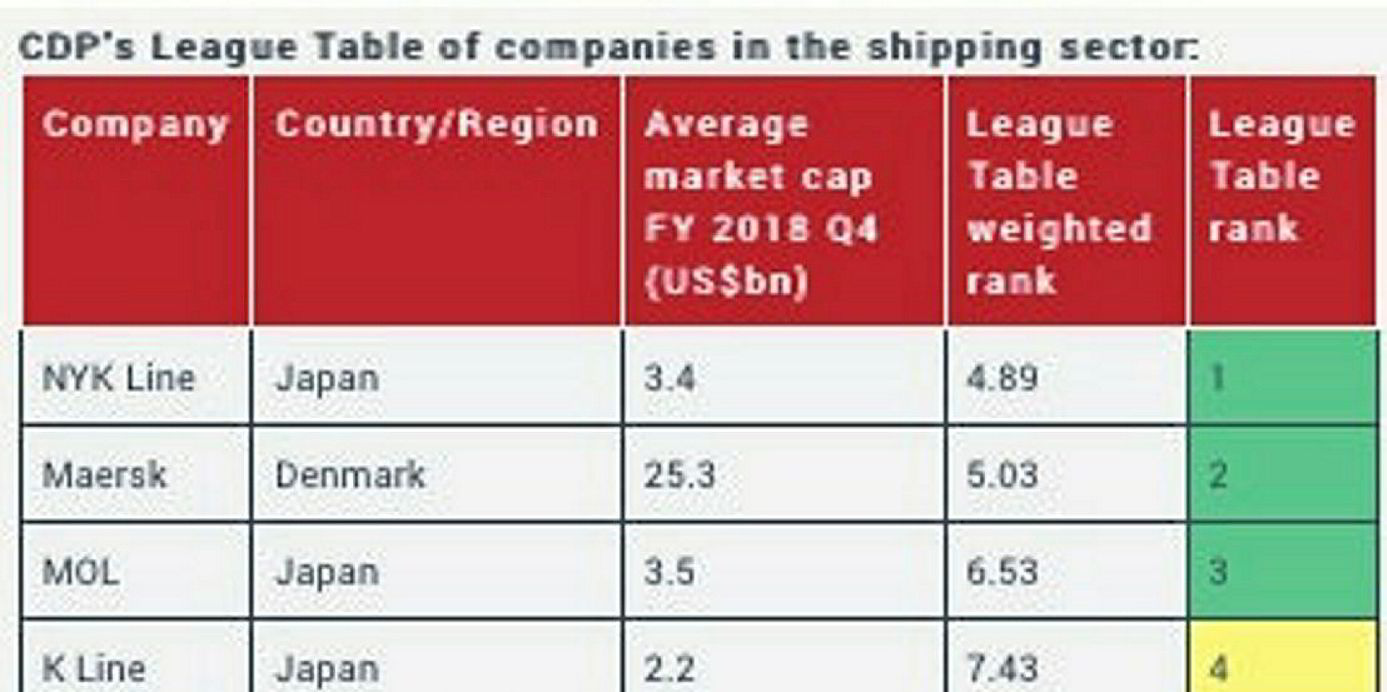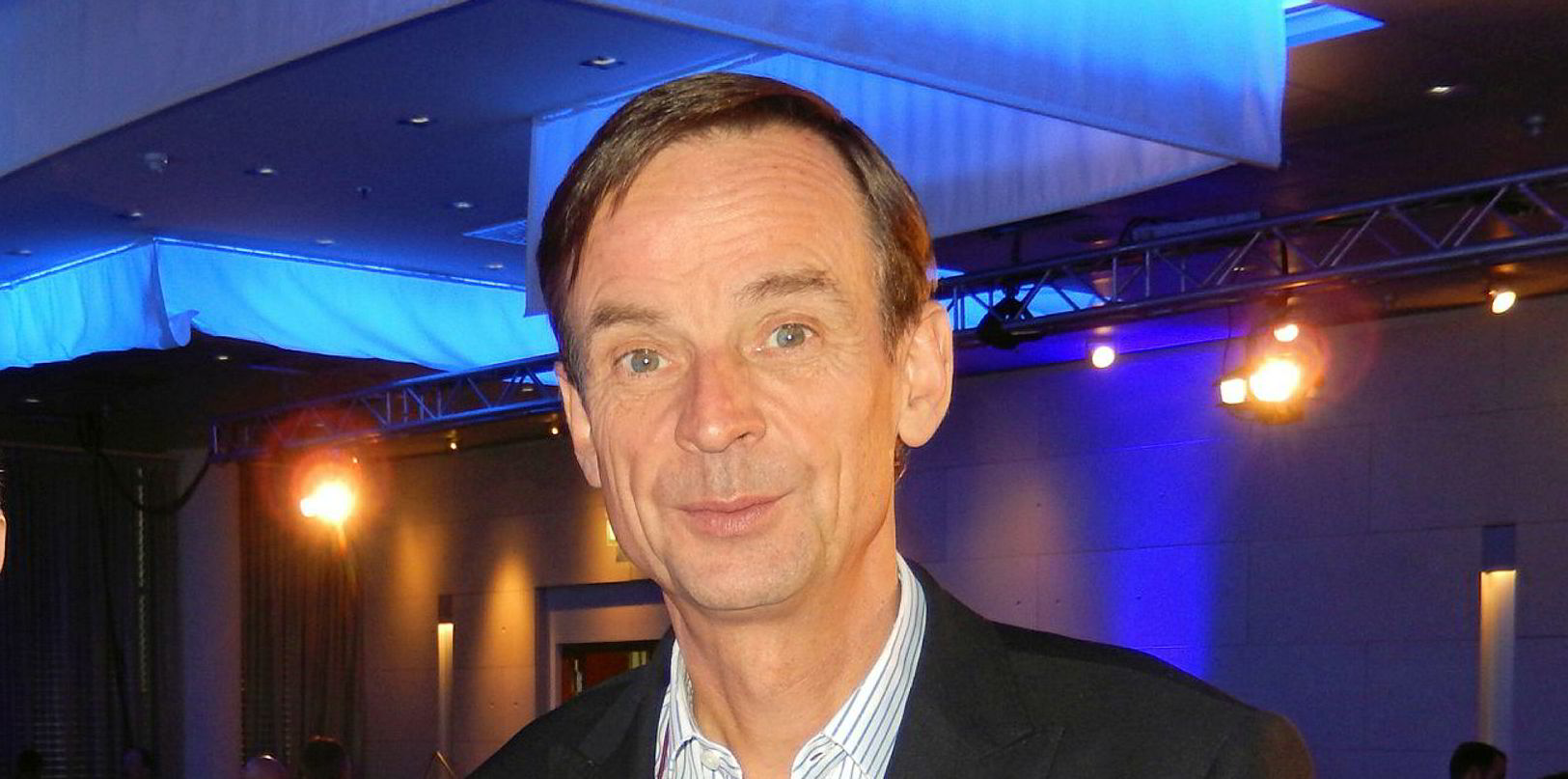
Non-profit green group CDP has released new research it claims shows the world's biggest shipping lines are not on course to meet 2050 emission reduction targets.
They are not investing enough to cut greenhouse gas output by 50%, as mandated by the IMO.
The report, A Sea Change, ranks 18 of the largest publicly listed shipping companies, representing $62bn of market capitalisation, on their readiness for a low-carbon transition.
NYK came top, with Maersk and MOL in second and third positions.
The lowest ranked companies are Cosco Shipping Energy Transportation and NS United.
"To date, Maersk, HMM and Norden are the most ambitious in setting long-term targets to reduce carbon emissions, consistent with the IMO’s strategy," CDP said.
"However, the report finds there is a gap between the cutting-edge carbon neutral technologies available to companies, and the forms of innovation they are developing."
Only three owners are actively developing technologies that can have a transformative impact on the industry, the group added.
"Companies such as NYK are working towards developing zero-emission vessels for 2050, whilst Maersk and Norden are actively pioneering the use of ‘second generation’ biofuels produced from waste sources such as cooking oil."
And it warned: "Wider innovation trends currently focus on technologies and fuels that only deliver marginal improvements."
Slow-steaming can cut emissions by 30%
Turning to slow steaming, it said this was an important short-term solution capable of reducing carbon emissions by up to 30%.
But it added: "Although slow steaming is positive in the short term, it could result in more voyages to meet growing demand, eroding the emission reductions made by slowing down ships."
Carole Ferguson, head of investor research at CDP, said: “Shipping companies are facing a sea change on the horizon.
"Based on current technologies, marine freight is one of the least emissions intensive modes of transport, therefore critical to the low-carbon transition. But as the global economy grows, the industry could account for 17% of global emissions by 2050, if nothing is done."
CDP is calling for collaboration with shipyards and shipping technology companies to develop innovation.
Ferguson added: "While it is promising to see that leading companies are acting, with Maersk and HMM setting net zero emission targets for 2050 and exploring alternative fuels, the onus must be on the whole sector to jump start their shift into a low-carbon future.”
CDP found that retrofitting existing fleets could be the most efficient strategy over the short-term before more transformative technologies become viable.
Container transport is the most emissions intensive shipping sector, but has achieved the highest emission reductions across the industry, on average reducing by 5.3% between 2012 and 2017, CDP said.
Emissions from the bulk and tanker divisions have stagnated, with emission intensities from both sectors increasing 1% and 0.5% on average over the same period.






